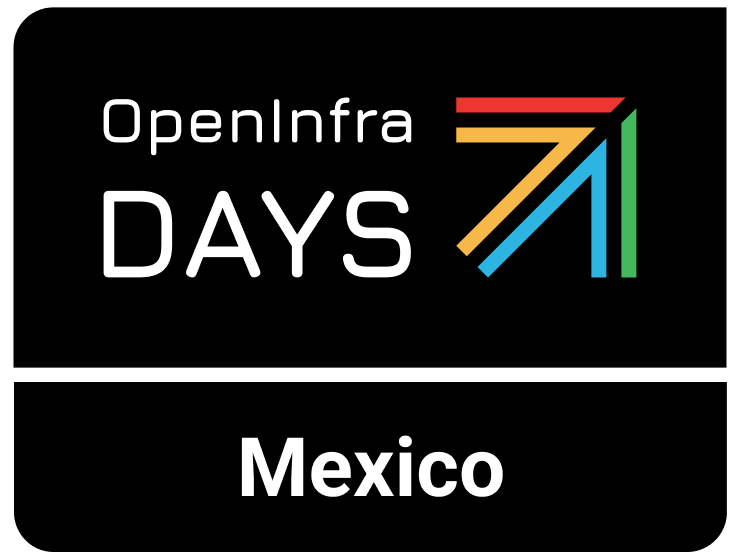Call for presentations
Call for presentations is now Closed we appreciate all the speakers who submitted proposals, you should all have our committee decision in your inbox, if not, please reach out to us ASAP.
Open Infrastructure Days Tracks
The Open Infrastructure events includes keynotes, presentations, panels, hands-on workshops, and collaborative working sessions covering over 30 open source projects. Expect to hear about the intersection of many open source infrastructure projects, including Ceph, Kubernetes, Magma, ONAP, OPNFV and the projects hosted by the OpenInfra Foundation: Airship, Kata Containers, OpenInfra Labs, OpenStack, StarlingX, and Zuul.
Call for Presentations
5G, NFV & Edge
Topics include: 5G, cloudlet, distributed computing, economics, Mesh, security, networking, architecture, ease of deployment, edge ecosystem, hardware performance accelerators (e.g. GPUs, ASICs, etc.), hardware profile, IoT, low end-to-end latency, management tools, scaling, edge-enabled applications, physical hardening, QoS, remote/extreme environments, remote troubleshooting, standalone cloudlets, tamper evidence, tamper resistance, VM and container handoff across WAN connections, zero-touch provisioning, QoS, SDN, SLAs, standardization e.g. ETSI NFV.
AI, Machine Learning, HPC
Topics include: AI, computation, cluster, economics, exascale, government, GPUs, grid, HPC, HTC, machine learning, New applications for AI running on OpenStack clouds, Novel/Emerging architectures for GPUs/AI, operations at scale, performance, scientific research.
CI/CD
Topics include: Software development pipeline, automated testing, QA, culture & process, policies & compliance, CI/CD ecosystem, repository architecture, unit vs integration testing, deployment maturity model, gitops.
Container Infrastructure
Topics include: Running containers at scale, container ecosystem, container networking, container storage, container security, hybrid VM & container architectures, containers & bare metal.
Getting Started
Beginner-level track to learn the basics about all open infrastructure-related topics.
Hands-on Workshops
Hands-on Workshops offer a window into training for operators and application developers across different projects. Sessions are typically 90 minutes and require an RSVP and some prep work. Bring your laptop and walk away with the skills you need to become an open source contributor.
Hardware Enablement
Topics include: Software components needed to enable hardware in cloud or edge environments, GPUS, DPUs, FPGAs, sustainability, data center operations, hardware standards (Open19, OCP), data center efficiency, server design, SmartNICs, testing and certification.
Open Development
Topics include: the 4 opens, the future of free and open source software, challenges of open collaboration, open development best practices and tools, open source governance models, diversity and inclusion, mentoring and outreach, community management.
Private & Hybrid Cloud
Topics include: architecture, bare metal, economics, hardware, operations, orchestration & hybrid cloud tools, networking, organizational culture & processes, security & compliance, SLAs, storage, upgrades, user experience, vendor selection.
Public Cloud
Topics include: architecture / hardware, economics, cloud portability, features & needs, federation, hardware, operations / upgrades, multi-tenants, networking, performance, scale, security & compliance, SLAs, storage, open source platforms, tools & SDKs, UI / UX, upgrades, user experience.
Security
Topics include: Attestation, authenticity, authorization, data protection, encryption, identification, policy enforcement, privacy, regulatory compliance, risk management, trusted computing, vulnerability tracking/mitigation.
FAQ - How to Submit a Proposal that will be Accepted
Q: Who is the audience for my talk? A: The Open Infrastructure Days is for people who run and make decisions about IT infrastructure strategy, technologies and vendors. Open source infrastructure is flexible, innovative and interoperable. And it’s made up of many different technologies and providers around the world.
Q: What should my title include? A: Your title will be used by the attendees to decide among multiple tracks which talk to attend for the next session. It should attract people to your talk. Consider not just the technology as part of the title, but also what you are uniquely bringing to the discussion. A little controversy adds to the attraction. Ending with a question that attendees will want to find the answer to can help.
Q: What should my abstract include? A: The best abstracts summarize the topic you will present, but also demonstrate that you have the expertise to be "the one" to give a talk on this subject matter. State any prerequisite knowledge that might be required, or if it is an entry-level talk (we need those also), say so. Most abstracts are rejected because we cannot determine whether it will be a good talk or not.
Q: What about my job title? A: If you have a title with the word "product", "manager", "sales", or "marketing" in it, you may need to go to extra effort in your abstract to convince us that you will give a good technical talk.
Q: What should I include in learning objectives? A: Each objective should be a concrete insight you expect the audience to gain. This is an additional way to demonstrate your grasp of the subject matter. Do not leave these blank.
Q: Can I have more time to submit? A: We start evaluating proposals as soon as they are submitted. The earlier you submit, the less competition we have in front of us for the topic you want to present. Later submissions are compared to your early submission. Taking time to do a good job on the proposal will be reflected in your probability of being accepted. Hacking something together at the last minute just prior to the deadline is not a strategy for success.
Contact Information
For additional questions, please contact speakers@openinfradays.mx
